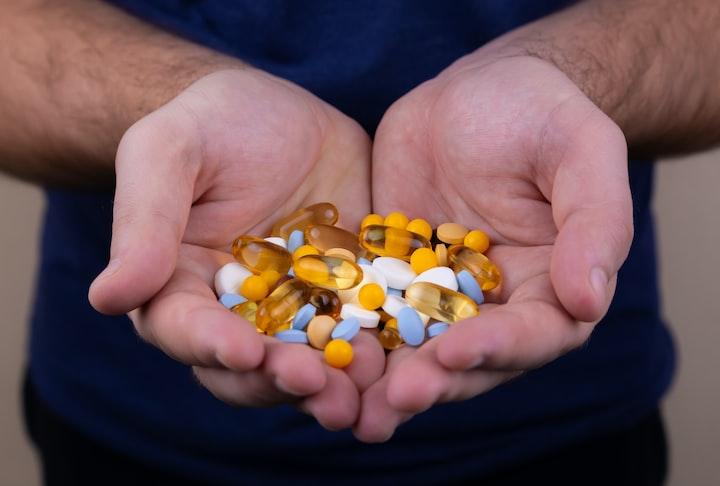There are many natural remedies that can help reduce anxiety. Some of the most popular include: herbs such as chamomile, passionflower, and kava kava; supplements such as omega-3 fatty acids and magnesium; and lifestyle changes such as regular exercise, relaxation techniques, and a healthy diet.
Most people find that a combination of several different approaches is the most effective way to manage anxiety. Experiment with different natural remedies to see what works best for you. Remember that it may take some time to find what works best for you and that it’s important to be patient.
A pale yellow tinge to your skin
If you have a pale yellow tinge to your skin, it could be a sign that you are not getting enough vitamin B12. Vitamin B12 is important for the production of red blood cells, which carry oxygen around the body. A lack of vitamin B12 can lead to anemia, which can cause fatigue and weakness.
A sore and red tongue (gloss it is)
Glossitis is a medical condition that describes inflammation of the tongue. The tongue may appear red and sore, and the individual may experience burning or tingling sensations. Glossitis can be caused by a number of different factors, including vitamin B12 deficiency, infections, oral hygiene issues, and allergies. Treatment for gloss it is will vary depending on the underlying cause.
Mouth ulcers
Mouth ulcers are open sores that form in the mouth, and can be very painful. They are usually white or yellow in color, and may have a red border. Mouth ulcers can make eating and talking difficult, and can also cause bad breath. If you suffer from mouth ulcers, you may also experience fatigue, dizziness, or weakness.
A vitamin B12 deficiency is often the cause of mouth ulcers. This is because vitamin B12 helps to produce healthy red blood cells. Without enough vitamin B12, your body can not produce enough healthy red blood cells to carry oxygen to all of your tissues and organs. This can lead to a variety of health problems, including anemia and fatigue.”
Pins and needles (paraesthesia)
Pins and needles is a sensation of prickling or tingling in the skin. It is often caused by pressure on or damage to nerves. This can result from sitting in one position for too long, pregnancy, wearing tight clothes, or carrying a heavy bag on your shoulder. The sensation usually goes away once you remove the pressure or change position.
However, pins and needles can also be caused by more serious conditions such as diabetes, multiple sclerosis (MS), carpal tunnel syndrome, and vitamin B12 deficiency. If you experience pins and needles frequently or it lasts for more than a few minutes, you should see your doctor to rule out these other conditions.
Vitamin B12 is an essential nutrient found in meat, poultry, fish, eggs, and dairy products. It helps the body make red blood cells and keep the nervous system functioning properly. Vitamin B12 deficiency can cause fatigue, weakness, constipation, loss of appetite, weight loss, megaloblastic anemia, neuropathy (nerve damage), dementia, depression, psychosis. If left untreated, vitamin B12 deficiency can lead to permanent neurological damage.
The best way to prevent vitamin B12 deficiency is to eat a well-balanced diet that includes foods rich in vitamin B12 such as meat, poultry, fish, eggs, and dairy products. You can also take supplements containing vitamin B12 if you are at risk for deficiency such as vegetarians/vegans, elderly people (> 50 years old) who don’t eat enough animal protein foods, people with gastrointestinal disorders that limit absorption of nutrients from food (e.g. Crohn’s disease).
Changes in the way that you walk and move around
If you are experiencing any changes in the way that you walk or move, it is important to speak to your doctor to rule out a vitamin B12 deficiency. Vitamin B12 deficiencies are relatively rare, but they can be serious if left untreated. Symptoms of a vitamin B12 deficiency can include:
– Changes in the way that you walk or move around – Muscle weakness – Numbness or tingling in the extremities – Difficulty balancing – Dizziness.
Disturbed vision
Vitamin B12 is essential for many functions in the body, including the formation of red blood cells and the maintenance of a healthy nervous system. A lack of vitamin B12 can lead to anemia and other serious health problems.
The best way to get enough vitamin B12 is by eating a balanced diet that includes meat, poultry, eggs, dairy products, and foods that are fortified with this nutrient. Some people may also need to take supplements or receive injections of this vitamin if they have certain medical conditions or follow a vegan diet.
Signs that you may be deficient in vitamin B12 include fatigue, weakness, lightheadedness, pale skin, and difficulty thinking clearly. If you experience any of these symptoms, it’s important to see your doctor for testing and treatment.
Irritability
If you’re feeling irritable, it could be a sign that you need more vitamin B12. Vitamin B12 is an essential nutrient that helps keep your nervous system functioning properly. Without enough vitamin B12, your body can’t produce enough of the myelin sheath, which protects your nerve cells. This can lead to problems with cognitive function and mood, as well as other neurological symptoms. If you think you might be deficient in vitamin B12, talk to your doctor about getting tested.
Depression
Depression is more than just feeling down for a few days. It’s a serious mental health condition that requires treatment. If you think you might be depressed, talk to your doctor or a mental health professional.
There are many different types of depression, and it’s important to get the right diagnosis so you can get the best treatment. Treatment for depression usually involves medication and/or therapy.
